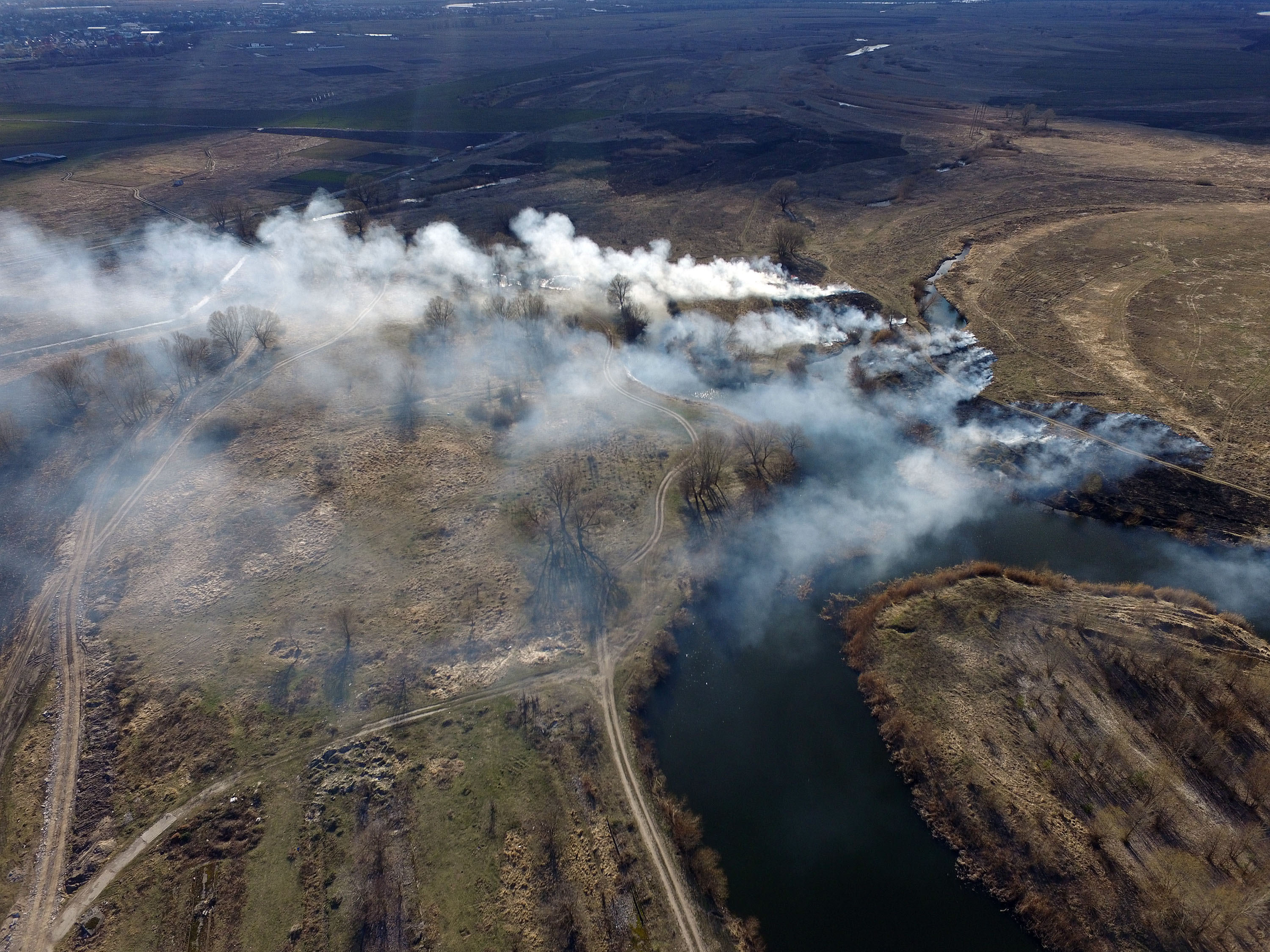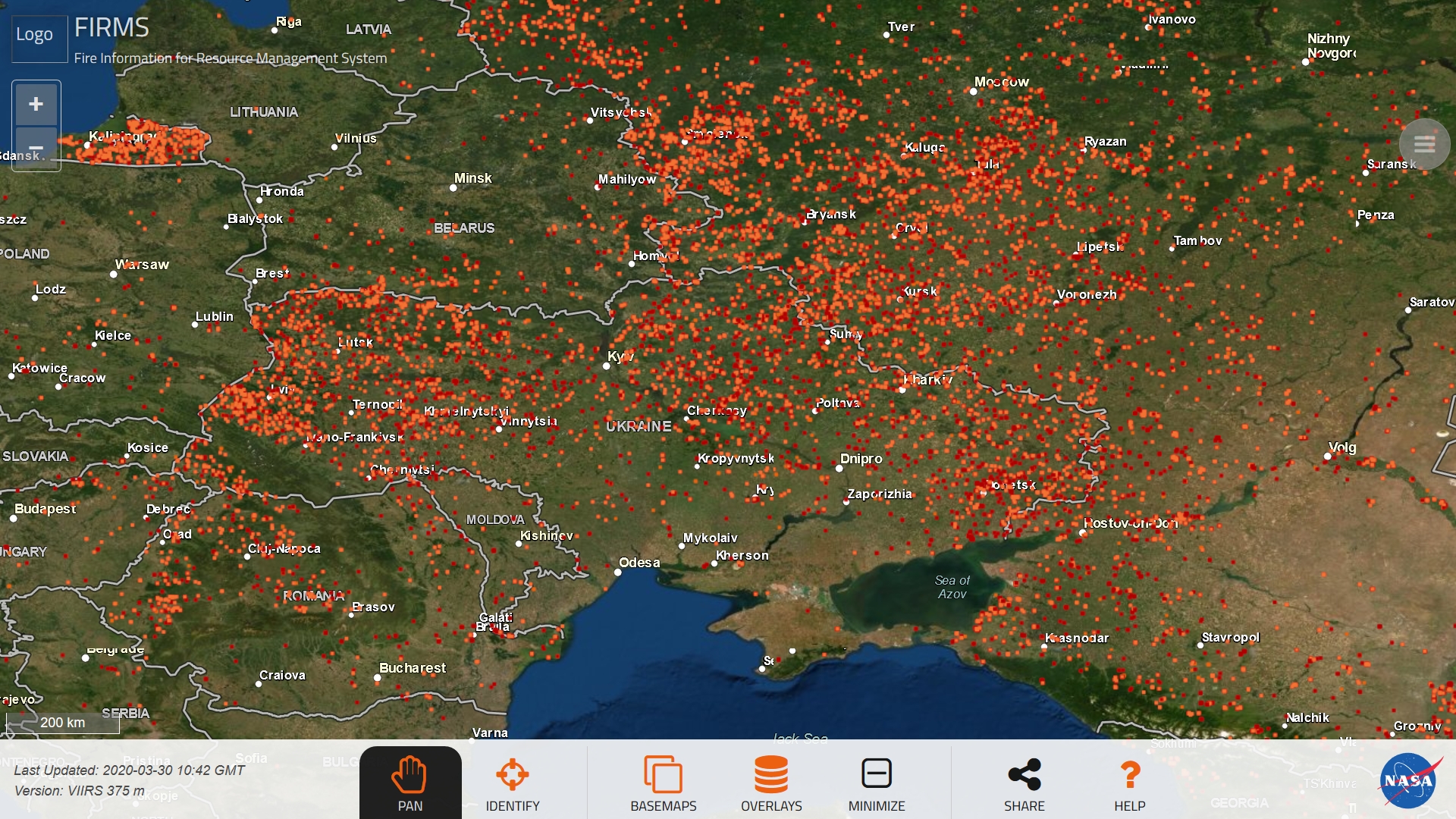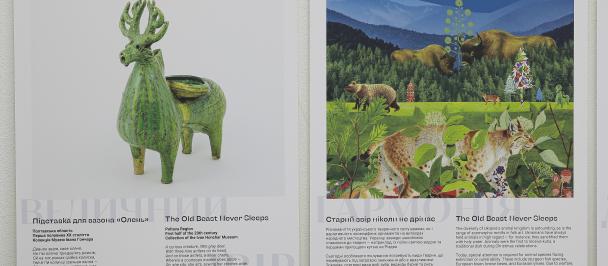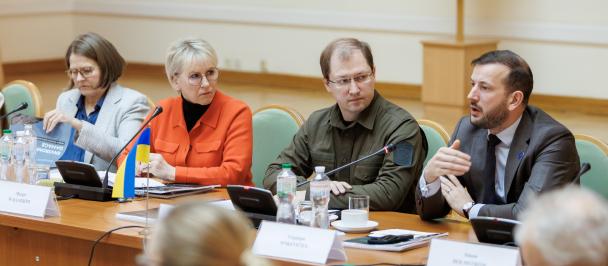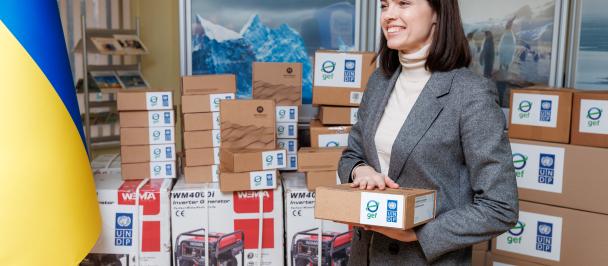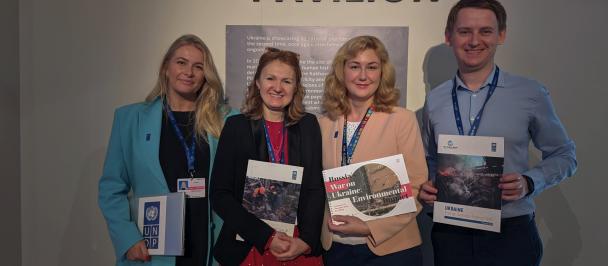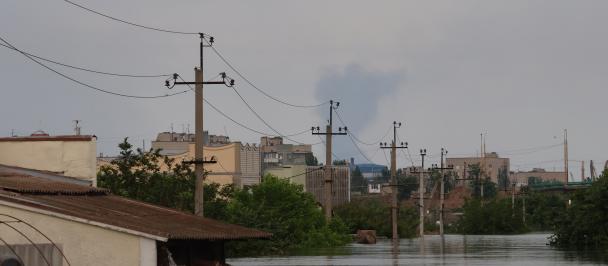The smoke from the burning of dry grass. Local residents set fires to the grass on purpose. The practice affects local ecosystems, small animals are particularly at risk. Drone image taken on March 17, 2019 near Kyiv,Ukraine. Photo credit: Sergey Kamshylin / shutterstock.com
KYIV, 30 March 2020 – UNDP Ukraine’s Accelerator Lab jointly, with the Center for Innovations Development launched the “Don’t Burn – Compost” Challenge for responsible communities across Ukraine, with the aim of preventing the burning of stubble, fallen leaves, organic waste and other garden and agricultural waste in their communities.
Every year, Ukraine sees over 56,000 fires in natural ecosystems and in open territories, according to the State Emergency Service of Ukraine. This causes billions of losses to the national economy, pollutes the air, destroys entire ecosystems and causes deaths. In 2019, indirect losses from fires in ecosystems were about UAH 3.4 billion; while 84 people died as an effect of the burning.
There were more than 4,000 fires in Ukraine in the period from 25-28 March 2020, according to VIIRS satellite data. Source: NASA
Such a grave problem cannot be resolved with fines alone – it is vital to look for innovative solutions, for example, those offered by satellite monitoring data. Under the pilot project, participating communities will be able to track in almost real-time the fires in their communities, and also enter data collected by local community activists to a specially designed online map. With e-solutions, the participants will also be able to get information about fires in their communities over the last three years based on satellite data (analysis reveals that about 80 percent of fires in some communities occur in the same locations). For monitoring purposes, satellite data and one of the GIS solutions piloted by the “E-Solutions for Communities” project will be used.
This experimental project is a part of the “Collective Intelligence Design Studio,” facilitated for Accelerator Labs network by NESTA – an innovation foundation, based in the UK. Collective intelligence is created when people work together, often with the help of technology, to mobilize a wider range of information, ideas and insights to address a social challenge. The premise is that intelligence is distributed. Different communities hold different pieces of information about what works in their contexts, and different perspectives that, when combined, create a more complete picture of a problem and how to solve it.
While researching the practice of burning of stubble and organic waste, the team at the UNDP's Accelerator Lab talked to some community representatives and came to the conclusion that organic waste composting is one of the most effective and eco-friendly ways to reduce burning practices in communities, and probably one of the best solutions for Ukraine. Therefore, part of the project will focus on promoting composting.
“Introducing composting as one of the widely used nature-based solutions can certainly improve the quality of air while addressing environmental challenges and improving the organic waste management practices in the local communities,” says Manal Fouani, UNDP in Ukraine’s Deputy Resident Representative to Ukraine.
“This practice brings not only environmental benefits, but also economic ones. It is an excellent example of a circular economy where nothing is wasted. As we launch this project, we hope to promote composting in Ukrainian communities and households, and come another step closer to achieving three of the UN’s Sustainable Development Goals – Goal 13: Climate Action, Goal 3: Good Health and Well-Being, and Goal 15: Life on Land. In a nutshell, let’s work together to improve the quality of air we breathe in Ukraine”
Ukraine has already seen some successful and cost-effective composting practices. They help not only to reduce harmful greenhouse gas emissions from landfills, but also to meet communities' needs for fertilizers for gardening, replanting, landscaping materials, and more. Therefore, the project aims to engage everyone interested in establishing and expanding a composting sites network in Ukraine, and to create an open map of composters in Ukraine.
The pilot project is designed to run for two months. In early June 2020, the project organizers will analyse the results of the spring fires prevention campaign, taking into account satellite monitoring data and data collected by local volunteers, and present the best practices for tackling this problem in Ukrainian communities.
Detailed information about the conditions for participation and the project’s concept are available at this link.
About the organizers
UNDP Ukraine’s Accelerator Lab is a global UNDP initiative aimed at identifying, elaborating and scaling-up innovative and sustainable solutions for local communities. Sixty Accelerator Labs teams are serving 78 countries to tackle 21st century development challenges.
The Centre for Innovations Development specializes in research, innovation and projects focused on participatory democracy, e-democracy, participatory budgeting, e-governance, smart cities, collective intelligence, and data analysis-based management at the local and national level.
Media contacts:
Yuliia Samus, Communication Specialist, UNDP Ukraine, communications.ukraine@undp.org, +38 097 139 14 75
Kateryna Ivanchenko, Communications Manager, Center for Innovations Development, press@cid.center, +38 093 293 14 89

 Locations
Locations